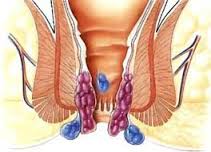Piles are haemorrhoids are caused due to the swelling of the blood vessels inside the rectum or around the anal opening. These lumps vary in size and can occur inside or outside the anus.
Table of Contents
Haemorrhoids commonly called as Piles
Types
Internal piles-
These develop inside your anal canal, occasionally they can hang down outside the anus depending upon the swelling.
External piles-
These are swellings that develop further down your anal canal around opening of the anal pore. They can be more painful than internal types of piles.
Causes of piles formation
- Piles can develop from repeatedly straining when passing a stool that increases the pressure on blood vessels, and they may bleed.
- Piles are very common, and primarily affect pregnant women and the elderly and obese
- People suffering from constipation
- Lifting of heavy objects regularly
- If in family someone has piles, there are possible chances of having piles.
There are many remedies for prevention of piles:
- A high-fiber diet will help keep your stools soft, reducing your risk of having to strain to pass a stool, which is the primary cause of haemorrhoids.
- Try emptying your bowels as and when you need to. By delaying going to the toilet, your stool becomes harder and drier, which will cause straining.
- Add fresh fruits and vegetables to your diet.
- Eat plenty of fresh fruit and vegetables.
- Cut down on fat, sugary food, and refined and processed food.
- Eat plenty of pulses, such as peas, beans and lentils.
- Eat plenty of wholegrain foods, such as whole wheat bread.
- Drink water regularly throughout the day.
- Exercise regularly. This can prevent constipation, reduce the pressure in your blood vessels and help you to lose weight.
- Avoid medication that causes constipation, such as painkillers containing codeine.
- Drink alcohol in moderation. Too much alcohol will dehydrate you and make your stools hard.
the size of the piles.
Haemorrhoids Symptoms
- Bleeding from your anus
- Lump in or around your anus
- Discharge of mucus
- Itchy skin around your anus

- Swelling around your anus
- Pain and discomfort after a bowel movement
Treatment
Non-surgical treatments
Banding-
This involves placing a small elastic band around the pile, which cuts off the blood supply and causes it to die and fall off after a few days. The area left behind will heal up naturally.
Sclerotherapy-
This involves having your piles injected with an oily solution, which makes them shrivel up.
Infra red coagulation or laser treatment-
This uses infra red light to seal the veins above the pile, which causes it to shrink.
Bipolar diathermy and direct current electrotherapy treatment-
This uses an electrical current to burn off the pile.
Surgery
Surgical treatments for piles are an option if you have severe piles. There are different types of surgery, including haemorrhoidectomy or stapled haemorrhoidopexy based upon the size of the piles.

